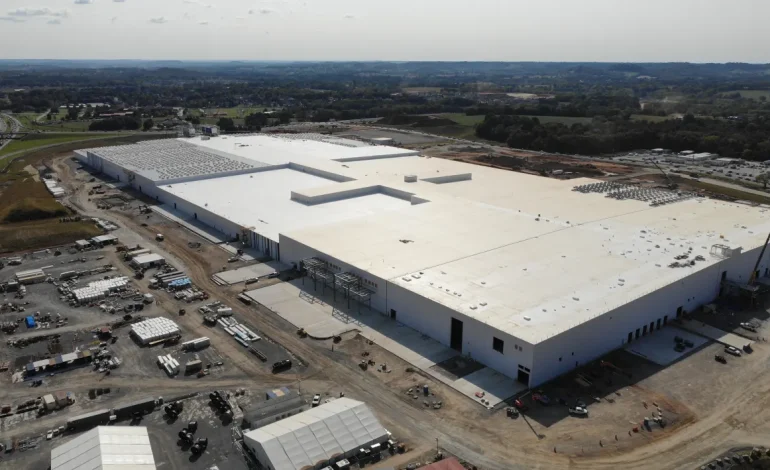General Motors and LG Energy Solution have announced plans to upgrade their joint venture facility in Spring Hill, Tennessee, to begin producing low-cost lithium iron phosphate (LFP) battery cells for electric vehicles.
The move is part of GM’s larger strategy to diversify its battery technology portfolio while lowering the overall cost of electric vehicle production.
The Ultium Cells joint venture intends to begin commercial production of the new LFP battery cells in late 2027. These cells are less expensive than conventional lithium-ion batteries because they do not require expensive minerals like cobalt or nickel.
“This upgrade at Spring Hill will enable us to scale production of lower-cost LFP cell technologies in the US,” said Kurt Kelty, GM’s vice president of batteries, propulsion, and sustainability.
He added that the new technology would supplement GM’s existing battery solutions and enable a broader range of EV offerings.
The Tennessee plant, originally announced in 2021 with a $2.3 billion investment, is one of several Ultium Cells facilities in the United States. It currently manufactures nickel-cobalt-manganese-aluminum (NMCA) batteries and supplies electric vehicles like the Cadillac Lyriq. The planned upgrade will allow the plant to produce NMCA and LFP cells.
GM has confirmed that its upcoming LFP cells will most likely be used in newer, more affordable vehicles, such as the next-generation Chevrolet Bolt EV. Until US production begins, the company plans to import LFP cells from LG’s overseas facilities to meet early demand.
The LFP cell project reflects a larger shift in GM’s EV battery strategy, which now includes multiple chemistries tailored to different vehicle segments. In addition to NMCA and LFP, GM is developing a lithium manganese-rich (LMR) chemistry, which the company says offers higher energy density at a similar cost to LFP. Production of LMR cells is expected to begin in 2028.
GM’s decision comes as automakers around the world adjust their EV plans in response to lower-than-expected consumer demand. Despite reducing some short-term goals, major manufacturers like General Motors and Ford continue to invest heavily in battery innovation in order to position themselves for long-term growth.
While GM emphasizes that its LFP technology will be developed independently of Chinese firms, rival Ford is pursuing its own LFP production using technology licensed from Chinese battery giant CATL. Because of its international ties, that project has come under political scrutiny.
The Spring Hill plant has approximately 1,300 employees and recently ratified its first union contract with the United Auto Workers. GM has also announced a $900 million investment in battery development laboratories in Michigan.










The latest news in your social feeds
Subscribe to our social media platforms to stay tuned